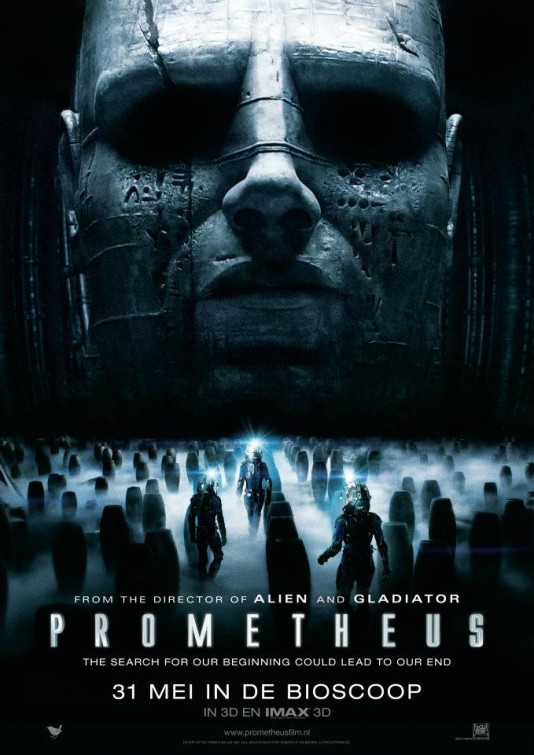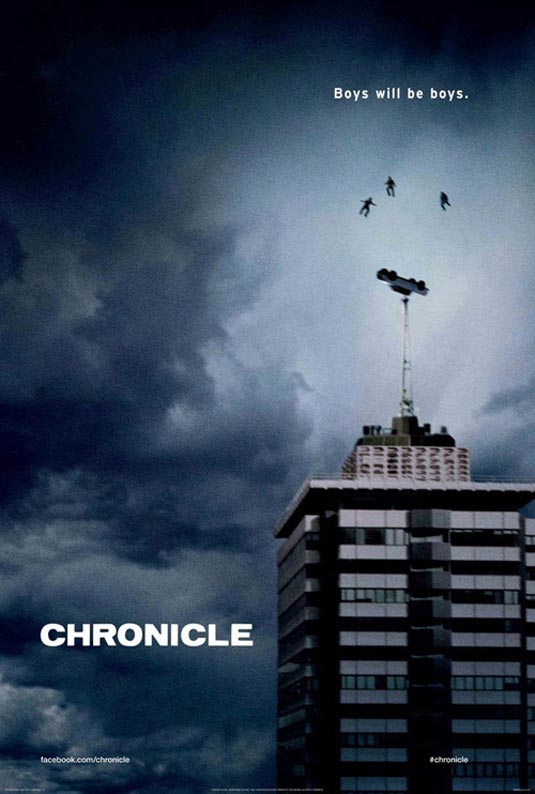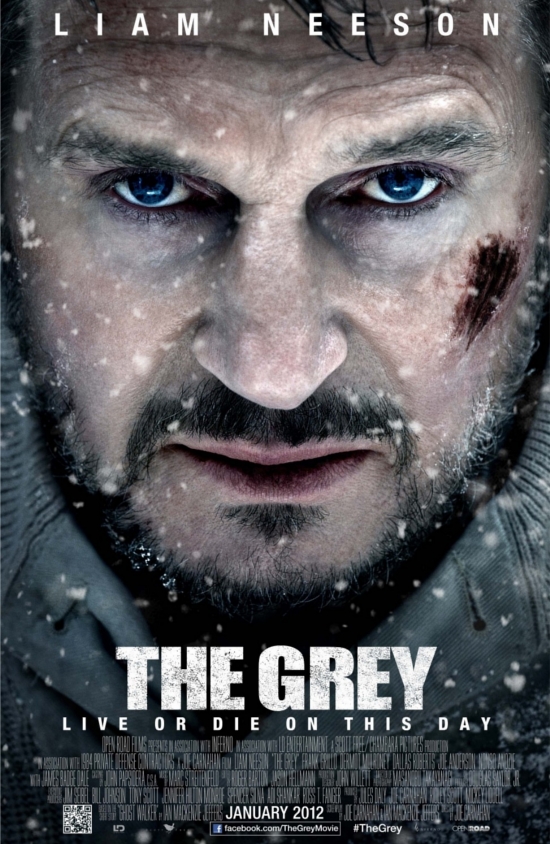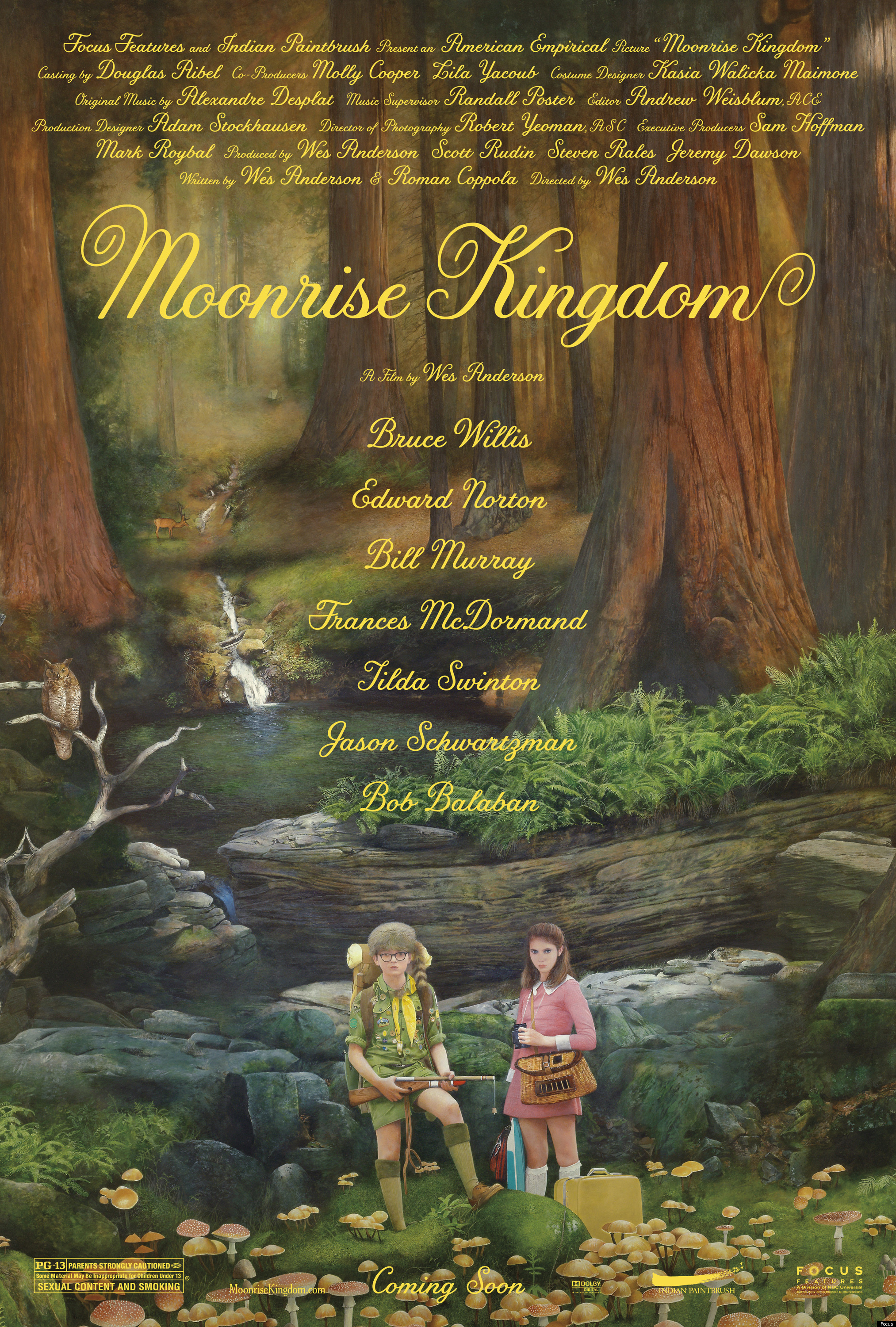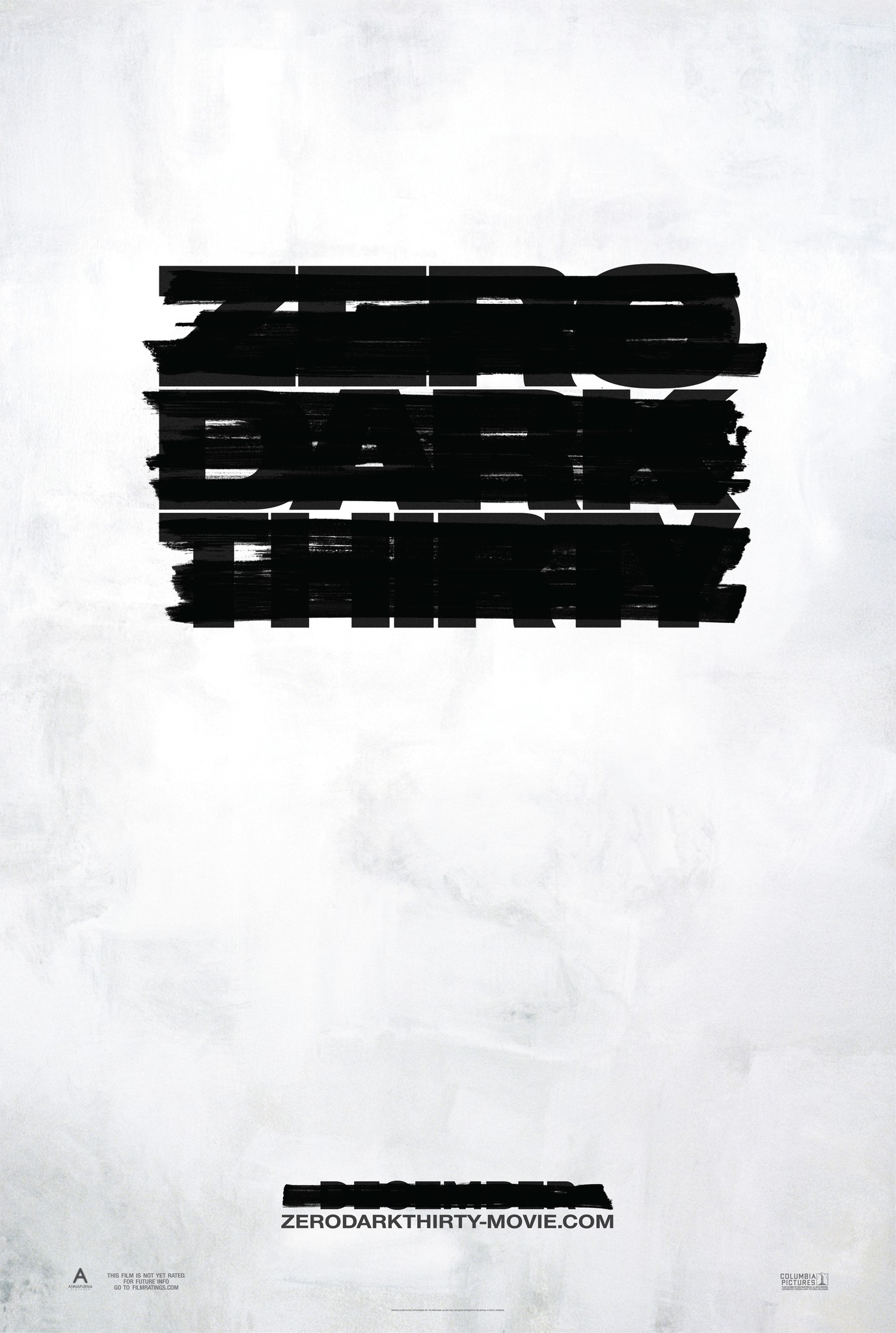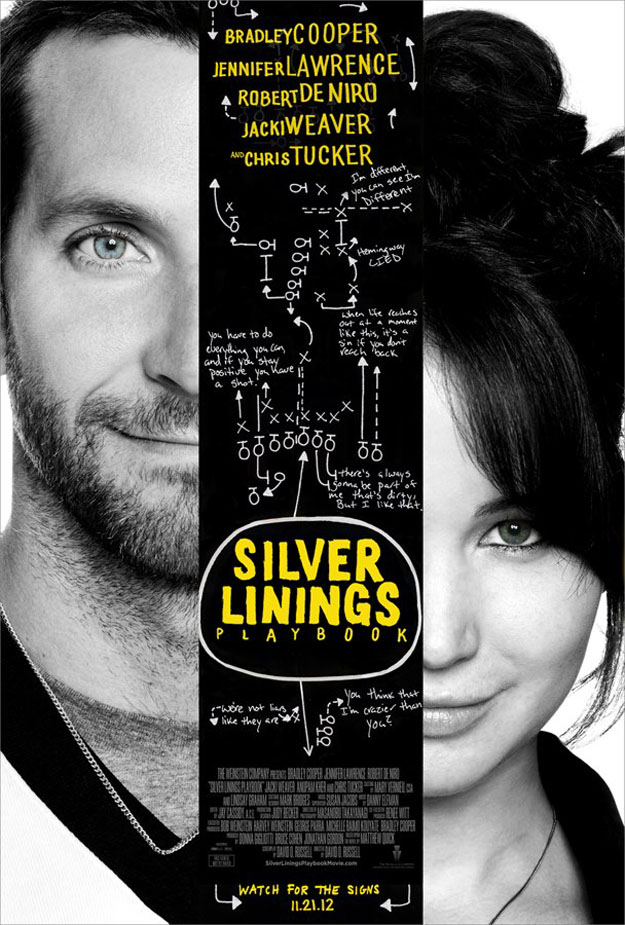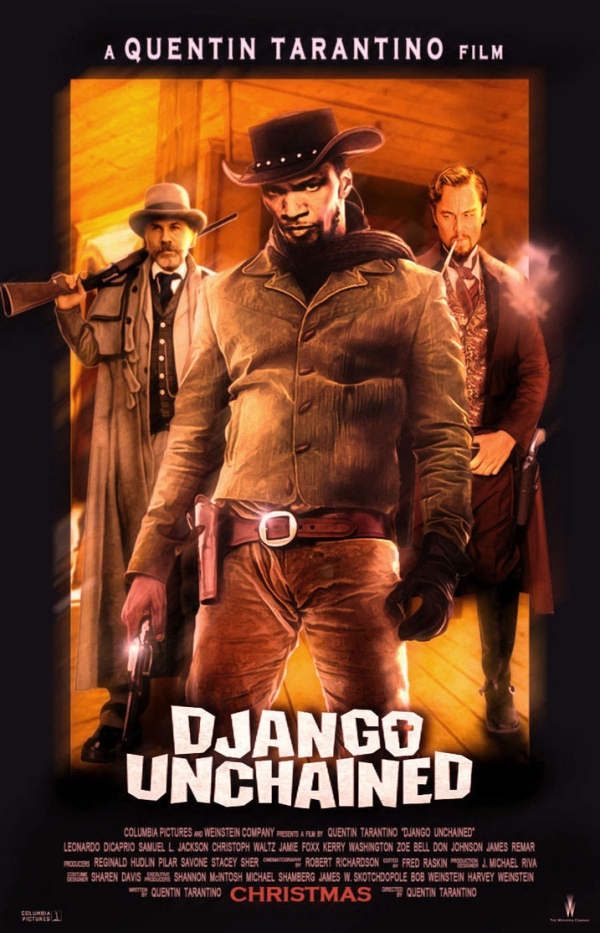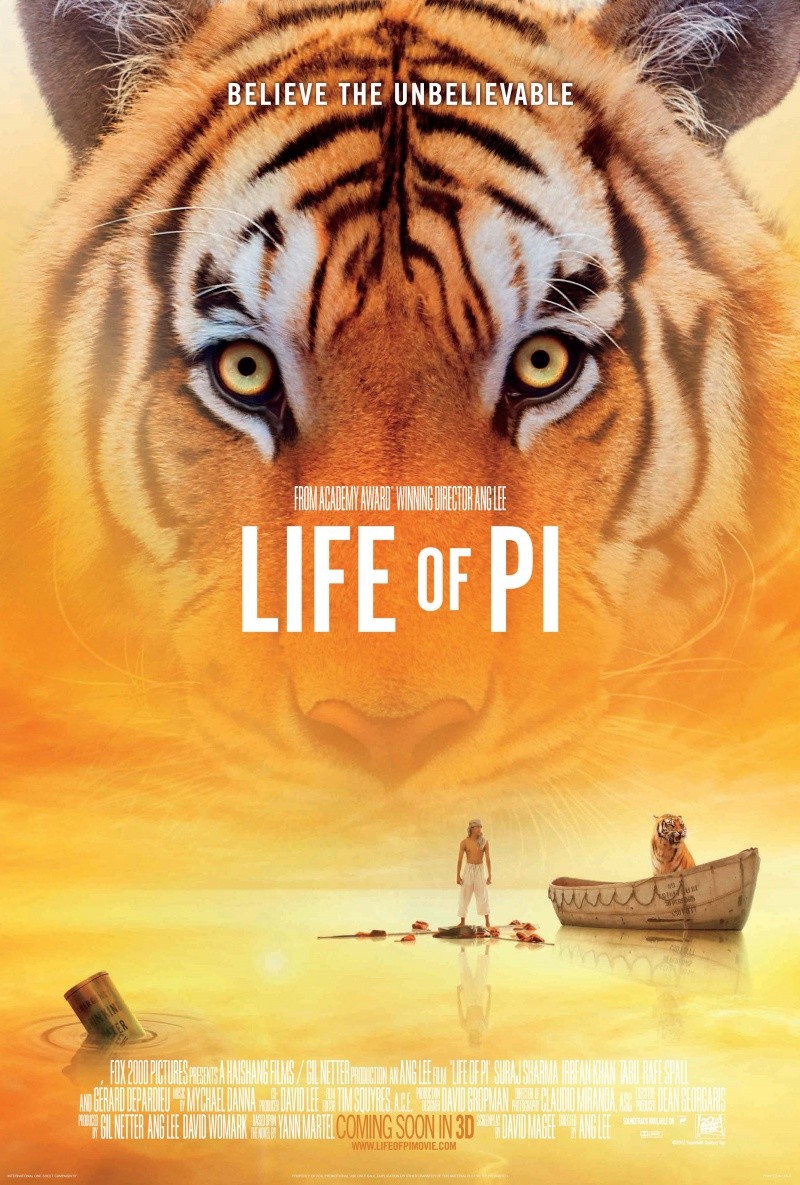Search Results for: the wall
Is one of the most hated movies of the year really in my Top 10??
I have to admit I was a little disappointed by this year’s crop of films. There was nothing that truly wowed me, that I HAD to recommend to my friends. There should be 2 or 3 movies a year where as soon as they’re over, you call your friends and say, “You have to see this now!” That’s not to say it hasn’t been an interesting year in film. We had a lot of stories, starting with the trilogy-closing Dark Knight Rises. I think Nolan’s penchant for extending his stories out past traditional run-times really hurt him on this one. The film clearly felt 45 minutes too long. Skyfall was adequate, but hardly recommend-worthy. The Hobbit is more a talking-piece than a film (it’s impossible to see that film in 48fps and not want to discuss the technology afterwards). I wish I liked Family Guy more as “Ted” appeared to be the breakout shocker of the year. “Safe House” was also pretty good for what was a safe (no pun intended) script. It also became the second-highest grossing movie of the year that came from a (true) spec script, at 126 million (Snow White And the Huntsman was number 1 at 155 million). No spec script films made it into the top 10. :) Let’s try and change that in 2013, guys.
The Bourne Legacy lost its mojo with the exit of Matt Damon. Argo was decent, but carried with it a strange seriousness that was always at odds with its outlandish true story. I’m still not sure why Judd Apatow made a movie based around the two most annoying characters from Knocked Up. But I was surprised to find that I actually liked the comedy crop of 2012. The Campaign, That’s My Boy, and The Dictator were all funny. None of the three were good enough to make my top 10, but they all made me laugh pretty consistently. It’s another reminder that you never know with comedies. I didn’t like the scripts for The Campaign or That’s My Boy, but the comedic mastery of those actors totally saved the projects (Will Ferrell is hilarious in The Campaign).
A few movies that I didn’t get to see but wanted to were Wreck-It Ralph, Cloud Atlas, and End Of Watch. I haaaated the End Of Watch script but everyone who sees it tells me it’s great. I hope it is. I’m always fascinated by bad scripts that become good movies. So I’ll be seeing that one soon. Oh, and there was one other movie I forgot to put on my Worst Of 2012 List yesterday: “The Watch!” What the heck was up with that movie??? Four guys sit around for 90 minutes. That’s the movie! That was one of the strangest viewing experiences I’ve ever had. Literally NOTHING happens. Anyway, enough of the trashing. It’s time to celebrate cinema. Here are my Top 10 films of 2012.
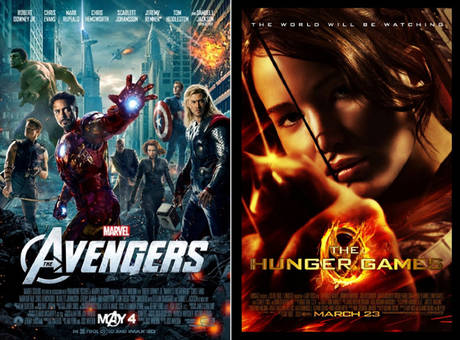
10) The Avengers/The Hunger Games – As much as I love good writing, I also enjoy seeing what happens when Hollywood goes all in on a movie. I love to see where they put their money. I love to see the latest advancement in special effects. I love to be taken somewhere I’ve never been before. Plopping down in that seat and turning off my brain off for two hours is a welcome relief from all the analyzing I have to do. Does that mean these movies were great? Hell no. If any of you said, “Yeah, but Carson, Plot Point A from Avengers is terrible and Decision C from Hunger Games is stupid,” I probably wouldn’t argue with you. But that doesn’t matter as much when you have Hulk smashing. Or Iron Man and Thor fighting (despite the fact that there’s no reason for them to!). And you know, I LIKED the setup for Hunger Games. Do I wish it would’ve been rated R so that we REALLY saw what happens when kids fight each other to the death? Sure, but of course that movie will never be made. For a PG-13 treatment of the idea, however, I thought they did a pretty good job. These movies were vaporware. I’ll never see them again. But for the 2 hours I sat there and watched them in the theater? They were fun!
9) Prometheus – I almost didn’t include this one just because of how much shit I’d get in the comments section for it. But then I put my big boy pants on and buckled up because I LIKED this movie. And no one’s going to convince me that I didn’t! I still believe a lot of the blowback has to do with franchise expectations and a killer trailer that promised a classic. I went into this with no expectations and didn’t see that trailer. So I wasn’t burdened by these things. And what I got was a compelling interplanetary mystery. A group of scientists head to a remote planet to inspect what could be the origins of mankind. Shit goes wrong. Sounds cool to me! The thing is, it’s hard to present a contained story like this where monsters/baddies aren’t chasing our characters around. Without them, the story can feel a little slow. You could make the argument that not much “happened” in Prometheus (if you weren’t into the mystery) until the third act. But I was into the mystery. I wanted to find out who these big bald white dudes were. So I was down til the final frame. I loved the production design. I loved the way the film was shot. I thought the acting was top notch. I loved the surprises in the plot. This movie was fun, and not even close to how bad you guys think it is. You wanna see what TRUE bad looks like? Watch this video. You’ll have a new found appreciation for Prometheus.
8) Jiro Dreams Of Sushi – It may appear as if I’m trying to gain some geek street cred after celebrating one of movie geeks’ most hated films of the year. I mean, Jiro Dreams of Sushi is the most film snob of choices: A foreign documentary with subtitles! But I loved this movie and let me tell you why. It’s about the best Sushi Chef in the world. His restaurant received the elusive 3-star Michelin award. For those who don’t know what that means, it means that food critics believe the restaurant is good enough JUST TO FLY INTO THE COUNTRY FOR. But what I really like about this movie was that you could just as easily apply the lessons learned to screenwriting. Just like screenwriting, creating sushi is a craft. It looks simple. Just add rice and a piece of raw fish (just words on a page). But it takes thousands of hours to perfect that craft (sound familiar?). Jiro is so meticulous that when he’s serving a party, he actually makes the sushi pieces for the women a little smaller than the ones for the men, so that they all finish at the same time. You will never look at sushi (and maybe screenwriting) the same way again after watching this film, which you can find on Netflix streaming.
7) Chronicle – I love when writers take ideas and evolve them. The found footage thing was reaching its breaking point in the horror genre. So to move it over to high school kids discovering a mysterious glowing object and developing super powers was kind of genius. The movie’s not perfect (no film on this list is, unfortunately) and they probably overplay the amount of abuse its main character had to go through (the scenes with daddy beating hero were ridiculously over-the-top), but you also have to commend the film for wrapping its story around an anti-hero, something you don’t see in many mainstream movies not named “Pirates Of The Caribbean” these days. And I don’t know, seeing it all go down via hand-held video gave it a realistic feel the movie never would’ve accomplished had it been shot traditionally. The effects were good too! Chronicle was a nice surprise.
6) The Grey – It’s impossible for me to disassociate this viewing experience from my original reading experience. For those who don’t know, I went gaga over this script when I first read it. And I was constantly getting updated on the movie as it went through various stages of development/production. To see it come to screen felt a little bit surreal. The big difference, I felt, between the film and the script, was that the film felt a little more hopeless, a little more depressing. I don’t know why, but I felt hopeful while reading the screenplay. Maybe in the way Ottway challenged those wolves. How he always knew what to do. And, of course, when he finally takes the Alpha on in the end (which wasn’t shown in the movie). I wish the movie would’ve embodied more of that hope. Despite that, the script nailed everything else that made the script great. You felt for Ottway. Neeson delivered those amazing voice overs perfectly (and his performance overall was awesome). The plane crash was great. The conflict between the characters was great. The conflict between the humans and wolves was great. There were a few slow spots, but overall, I really liked this one. Still think he should’ve fought that wolf though!
5) Moonrise Kingdom – Wes Anderson is back! He found his mojo! Life Aquatic and Darjeeling Limited were okay, but they felt like he was treading water. Moonrise proves that Anderson is best when he’s dealing with the awkwardness of youth. This is the way a love story should be told, dipped in messiness and rolled in weirdness. I LOVED the performances of the two leads, Jared Gilman and Kara Hayward. I loved that Anderson wasn’t afraid to push the envelope with their love, going places you’re not going to see in any Sisterhood Of The Traveling Pants sequels. I do wish Anderson would continue to evolve the look of his films. It’d be nice to see an occasional frame without everybody centered in it and staring at the camera, but hey, that’s his voice. And it worked nicely for Moonrise.
4) Zero Dark 30 – It’s dark. It’s serious. It’s a lot of un-botoxed people in rooms having important conversations. But it’s also good! I have to give it to Boal and Bigelow. They gave us a tension-filled thriller with an amazing climax. Do I wish the thing were shorter? Of course. Do I wish Jessica Chastain would’ve smiled once during the movie? Sure. I think if that character would’ve been more charismatic, more interesting – if we had known more about her, this film could’ve been a classic. The wall they put between us and her really hurt the film because she’s our connection to this story. We needed to get inside of her (that sounded wrong). But outside of that, this really did feel like how it would be behind the scenes in the hunt for Bin Laden. And it’s also another endorsement for the Goal-oriented screenplay. Make the goal big enough, and you’ll have us wrapped around your finger til the very end!
3) Silver Linings Playbook – Again, it’s the same advice I just gave you with Moonrise. If you’re going to write a love story, give us something different. We’ve seen the normal stuff a billion times over. You’re going to bore us to pieces if you do it again. Playbook has a main character who just got out of the nuthouse, a romantic interest who just lost her husband, fucked every guy at her work, and who is ALSO crazy, and the two enter a dance competition together, of all things. It’s just so bizarre. But it also works! — Was interesting to see that the big change from the draft I read was the betting stuff with the dad. That wasn’t in the script. My guess is that with Robert De Niro playing the father, they needed to beef up his role. Hence the change. It’s a great screenwriting lesson actually. Write every character as if you’re trying to snag a big actor. You’ll find yourself looking for unique interesting things to do with the character you never would’ve thought of had you been writing somebody “normal.” This is easily the best date movie of the year.
2) Django Unchained – It’s funny walking into a film and knowing you’re going to love it. I mean this script was PHE-NOM-E-NAL. But then how is Django Unchained only number 2 on my list? Wasn’t this a Gangbusters shoe-in for number 1? Well, here’s the thing. I’m not a huge Jaime Foxx fan, and I’m kinda surprised Quentin cast him. I thought he was going to pull a Pulp Fiction or Inglorious Basterds and pluck somebody out of obscurity we’d never heard of, or at least someone we hadn’t heard of for a long time. Foxx was the safest casting choice Tarantino’s made in a major role in his entire career. I was hoping I’d be wrong and Foxx would nail it, but I’m not sure he did. He was good, just not great. But outside of that, I thought DiCaprio was awesome. I love Waltz in anything, and he was great here. I loved Sam Jackson, who was a perfect villain. And all the scenes played out just as amazingly as they did on the page. Oh, and let’s not forget the only part of Tarantino’s scripts you don’t get in the script – the soundtrack! Once again, Tarantino proves he’s a master in this area. This is one of the only films I saw this year that I’ll be seeing again. Awesome stuff!
1) Life Of Pi – They say the movies that leave the biggest impression on you are the ones that burrow deep down inside your soul and challenge you to face things you’re either afraid of or never considered before. I’m not the most religious person in the world, but faith and religion do fascinate me. (spoiler) Life Of Pi finishes with an amazing question: “Which story do you believe?” I don’t want to spoil it by going any deeper than that, because the twist ending is what sets this film apart, but it’s a cool challenge the movie sets forth. The main character says he has a story that’ll make you believe in God. And Ang Lee did a pitch-perfect job of bringing that story to life. I thought this book was un-adaptable. And he found a way to make it even better! This is the only movie I’ve seen since Avatar that I’d recommend seeing in 3-D. There are these amazing shots both under and above water that have you double-checking your glasses to see if you’re really in the theater. The sinking ship with our main character treading water while watching hopelessly in the foreground has to be the best shot I saw in 2012. The acting from Old Pi is phenomenal. You want to talk about deserving an Oscar – Irrfan Khan puts everybody this year to shame. Even the kid who played Pi, who I was the most worried about, did great. This is a visual masterpiece with a heartwrenching friendship between a boy and a tiger with an ending that’ll make you question everything you know. The best film of 2012 for me!
Get down with the requisite Prometheus bashing, then tell me what your favorite movies of the year were! And stay tuned for Friday as I unleash my top 10 favorite amateur scripts of the year!
I was a terrible screenwriter. I once wrote a script about a man who was half-llama. I’m not kidding. The most frustrating thing about my failure was I didn’t know what I was doing wrong. It was obviously something, but after reading all the screenwriting books, hunting down all the screenwriter interviews, and writing until my fingers bled, there was still a big piece of the equation missing. I just couldn’t figure out what it was.
A friend of mine who’d been telling me to read scripts forever finally stuffed one in my face and told me he wasn’t leaving until I finished it. It was one of those “six figure sales” that gets splashed all over the trades. I opened the script begrudgingly, preparing to be bored out of my mind, and instead had as close to a religious experience as a writer can have. Something clicked while reading that script. Screenwriting made sense to me for the first time in my life.
I began scarfing down every screenplay I could find, often digesting three or four in a single sitting. At my most insane, I was reading 56 screenplays a week (eight a day!!!). This religious learning experience was so powerful, I began formulating a plan to introduce it to aspiring screenwriters. What if I reviewed professional screenplays online, helping amateur writers learn directly from those who’d already made it? It seemed obvious. Scriptshadow was born.
To my amazement, the site gained an immediate following and quickly became one of the most popular screenwriting sites on the internet. It has since been featured in numerous publications, including Wired, The New York Times, and the Wall Street Journal. It’s exceeded my expectations on every level and its success has allowed me many opportunities I had only dreamed of a few years earlier.
The structure of the site has evolved over time. I used to only review scripts, but now I mix it up. Monday is typically a screenplay-centric breakdown of the latest big movie. Tuesday I take a well-known film and extract 10 screenwriting tips from it. Wednesday I typically review a feature script or a television pilot. Thursday I write an article. And Friday, I turn it over to you guys, reviewing an amateur script. What’s been really exciting is finding some great amateur scripts in that Friday slot and those scripts go on to either sell or get the writers representation.
At the top of the site, you’ll see a toolbar for everything else. We have the best script consultants on the web in the “Script Notes” section, available at every budget to get your latest screenplay into shape. We have artists in the “Concept Artists” section to help you create concept art or one-sheets to stand out when pitching or querying. We have “Amateur Friday,” where you can submit your script for one of those coveted Friday reviews. We have one of the best screenwriting communities on the web in the comments section. No bitter angry dudes here. Just writers helping other writers out. And finally there’s the Scriptshadow book, which has 500 of the best screenwriting tips you’ll find, all broken down with examples from classic movies.
If you’re a big fan of the site (only big fans apply!), you should definitely get involved in the newsletter. I send it out once a week. It covers the big sales of the week and I review one of the bigger screenplays floating around Hollywood. It’ll be one of the only newsletters you’ll actually look forward to.
Hope you enjoy the site and if you have any questions, e-mail me at carsonreeves1@gmail.com!
Welcome to Amateur Week! All week we’re reviewing scripts from amateur writers that got the best response from this post. We’ve already had one script perform REALLY WELL in “Fascination 127.” And today we review the highest concept of all the entries, “USS Nikola Tesla.” Is it only a cool concept? Or is the execution just as good? Let’s find out…
Genre: Sci-Fi/Supernatural
Premise: (from writer) The American Navy’s latest destroyer, the USS Nikola Tesla, disappears without a trace. Two years later she reappears with no sign of her crew. But no one realises this ship holds a dark secret that dates back to World War Two and a horrifying experiment.
About: The big worry when you open up a high concept script from an amateur writer is that that’s all it’s going to be. The writer will set up the high concept in the first 20 pages, we’ll be riveted, and then once they don’t have that crutch to lean on and actually have to tell a story, the whole thing falls apart. I PRAY whenever I read one of these scripts that that’s not the case. Because if a reader finds a high concept script that’s also a great story? It’s like finding gold. You can start printing the money.
Writer: Anonymous (more on this in a second)
Details: 99 pages
Status: AVAILABLE
When I recieved the e-mail query for this script, it was accompanied by a very cryptic note from the writer, who explained that he couldn’t include his name on the screenplay. It was something about…I don’t know…how he had top secret clearance at Area 51 or something and if his name was associated with the script, men in black would visit his home and terminate him, along with all other members of the Resistance, except for the ones who were sent back in time to save humanity. I’m not sure what any of that means but it has me curious as to what happens if this script sells. Who do they write a check to? The writer obviously can’t accept the money. Maybe I’ll take it. Seems like a logical compromise.
Of course, I’ve gone down the anonymous writer path before. You’d be surprised at the lengths writers will go to get their scripts read, and the “anonymous” route is a popular one. Oftentimes the writer will imply a bunch of vague allusions to “big name actors” circling their script and how they’ll get in trouble if they send it. But they’re going to risk it all and send it anyway! They just can’t reveal their name.
There was even one guy who told me he had come across an old screenplay during a yard sale. He bought it for kicks and it turned out to be the most amazing thing he’d ever read. If I was interested, he noted, he could send it to me. I said, “Sure” just to see how far he’d take the story, and he magically sent me a PDF document of the script that was converted from a word processing program. If this was an old script he found at a yard sale, wouldn’t it have had to be scanned? Anyway, I opened the script up out of pure curiosity, and the first scene was a 10 pager focusing on urinal humor. Look, I respect playing the game a little. Just know that when a reader feels like they’re being taken for a ride, they’re going to be hard on your script. So, will that approach doom USS NIKOLA TELSA? Let’s find out.
“Tesla” begins with an ode to Close Encounters Of The Third Kind. A bunch of American soldiers in Afghanistan walk up a hill in the desert to see, below them, a giant half of a submarine. No, not a submarine sandwich (I should be so lucky). But an actual submarine.
Meanwhile, in Glasgow, two teenagers are making out on a foggy dock when a huge naval destroyer comes bearing down on them. They run for their lives, barely able to make it to safety, but soon afterwards, there’s a loud groaning noise from inside the ship and then a shockwave of energy shoots out, vaporizing the couple. And before the dude could even make it to second base!
Cut to army officials in rooms making hushed phone calls. “It’s back,” they tell one another. The USS Nikola Tesla. Apparently it had gone off on some training mission two years ago and disappeared! Naturally, they need to figure out what caused its return, so they e-mail the experts.
Two of those experts are Lieutenant Robert Montrose and Lieutenant Claire Allen. Montrose is a notorious Navy playboy who’s constantly looking to get his turret waxed. And Claire is a no-nonsense engineer who’s next sexual encounter will probably be her first. Obviously, when these two get paired together, conflict is going to fly!
And they do get paired together, along with a group of other officials who have been brought in to check out the mysterious return of this boat. It isn’t long before they realize something’s up. The boat likes to groan a lot, and it seems like everywhere you look, something is dashing behind a corner. Add a little magnetism to the mix – a pen will be yanked out of your hand and stick to the wall – and boarding this boat becomes its own little house of horrors.
But the biggest question of them all comes in the form of Charlie, a young man dressed in a World War 2 naval uniform who tells Montrose and Claire he’ll give them a tour of the boat if they’re interested. Once he touches them, a flash of light occurs, taking our characters to Nowheresville, and the story along with them!
Montrose and Claire end up in a 1950s military hospital and Charlie informs them that he was part of the original Philadelphia Experiment and when his boat was destroyed, he decided to use this new boat to show the world just how stupid they were for messing with science. How he plans to get his point across? By blowing some cities up mothafuckuh! And he has the powers to do it! While poor little Montrose and Claire only have the power of persuasion to stop him. Dammit these paranormal Navy ghost World War 2 Philadelphia Experiment castoffs. They always seem to screw up a perfectly good day.
Okay.
To put it bluntly? My biggest fear was realized. Strong setup. But with every page afterwards, the story fell more and more apart. And it’s not Anonymous’ fault. Well, not entirely. This is why there’s such a steep learning curve with screenwriting. You have to learn how to tell a story, not just set up a story. It’s a mistake I see made all the time. Writers think that all they need is a cool idea and they’re finished. No, you need a cool idea AND the knowledge of how to write a second act. The second act is where the concept takes a back seat to the characters. If the characters aren’t interesting in some way, if they aren’t tackling something substantial within themeselves and between each other, then the second act will rest too heavily on a series of forced plot points that we won’t care about because we don’t care about the people inhabiting them.
And that’s what happened here. Once Charlie shows up, the script just becomes one goofy nonsensical sequence after another. Look at Aliens. That was a hardcore action sci-fi thriller, right? But in that second act, you have Ripley battling her trust issues (she doesn’t trust Burke or Bishop or the entire operation) and trying to protect this surrogate daughter, Newt. In “Tesla,” we have Montrose and Claire bickering with each other via cheesy dialogue and Charlie being super-dramatic and often confusing with his scientific explanations. I’m still not sure how Charlie became a part of this ship in the first place.
I suspect that this stems from another common amateur mistake – the refusal to outline. You can almost always tell an un-outlined script because the further the script goes on, the less it makes sense. It feels like the writer is making stuff up as he goes along because that’s exactly what he’s doing. When you write this way, you feel this pressure to “keep things interesting,” and so you try and top whatever outrageous scene or sequence you just wrote with an even MORE outrageous scene or sequence. It’s kind of like that desperate boy pining for a girl’s attention. Sucking up jellow through a straw into your nose didn’t work, so why not rip your shirt off and start dancing on the table?
That’s not how screenplays work. You need to carefully plot out what’s going to happen 20 pages down the line so you can build up to that moment, whether it be through suspense, set-ups, or character development. “Tesla” certainly had a lot of stuff going on, but none of it felt cohesive. It felt more like a distraction to make sure you didn’t realize that there wasn’t a story.
If I were Anonymous, I’d focus on three things moving forward. First, learn the value of outlining. Once you know where your script is going, you can create a more logical and plausible plot. Second, learn how to tackle your second act. A second act isn’t just a bunch of crazy shit happening. It’s a slow build, where you tackle most of your characters’ issues. Which leads me to the third focus – character development. Give your lead characters something inside of themselves that they’re trying to overcome. With Ripley it was trust. But it might be the recent death of a family member, an inability to love, or the desire to prove that you belong. The possibilities are endless. But if a main character isn’t tackling SOMETHING inside themselves, chances are they’re boring.
What I learned: A screenplay isn’t just a high concept you parlay into a cool first 15 pages. The other 95 pages are going to be read as well, and those are the ones that are going to be more tightly scrutinized. Cause every reader worth his salt knows that that’s where you find out if you’re dealing with a writer or just an idea guy. Consider your high concept to be your “good looks.” It’s what gets you in the door. But you still have to be charming, you still have to be intelligent, you still have to be interesting. Your second and third acts are what’s going to prove your value as a writer, so make sure they kick ass.
Welcome to Amateur Week! All week we’re going to be reviewing scripts from amateur writers that got the best response from this post. Time for you guys to take advantage of the opportunity. Hope we find something great. But even if we don’t, it should be a great week for learning why screenwriting is so hard!
Genre: Comedy
Premise: (original logline) With temperamental technology thwarting them at every turn, three brothers get tangled up in love, lust and infidelity.
About: For those who remember, I wasn’t a fan of this logline. The phrase “temperamental technology” tripped me up (seemed way too complicated for a simple premise), and I always get nervous when loglines don’t lay out a clear objective. My experience is that when there’s no clear objective stated in the premise, there’s no clear objective in the script, and we get a wandering story as a result. However, the people who read the first ten pages of Pocket Dial spoke, and the general consensus was they liked’em. I was more than happy to be proven wrong, so I pocket dialed Chris Head with the hopes of leaving him some good news.
Writer: Chris Head
Details: 99 pages of script on the wall
Status: AVAILABLE
This isn’t going to be good news.
I wanted it to be good news. But we’re going to have to turn this review into more of a lesson. I realized pretty quickly that Pocket Dial was going to dial up my initial fear when I read the logline – that an unclear logline will always result in an unclear screenplay.
When you read a subpar script, you always have that “Uh-oh Moment.” It’s the moment where you realize the script isn’t going to work. And it’s a sad moment, because most of the time it happens early, and you still have a hundred-plus pages to go.
In “Pocket Dial,” the “Uh-oh” moment comes when one character tells another character he “fuck-ranks” women at work when he’s bored. Not only did the conversation not push the story forward, but it was told to us via flashback. Why are we flashing back within 15 pages of the opening to an event that seemingly happened a few days ago? It just feels sloppy, like the writer is more concerned with forcing jokes into the script than moving the story forward.
It’s not that you can’t put fuck-ranking into your script, but Chris should’ve figured out a way to do it in the present – in the midst of a scene that mattered. It seems like the point of the scene is to introduce a hot co-worker to one of our characters? So why not make that meeting a real scene then? Something that matters? Something that sets up a storyline for that character at work (i.e. he’s got to close this account or he’s not getting the promotion). Then he and another worker can be trading scraps of paper where they’re “fuck-ranking” the women in the room. Now the “fuck ranking” is happening in the midst of an important scene so you get the joke WHILE pushing the story forward, as opposed to forcing an unnatural 2-days-ago flashback into the first act (in general, you should just avoid flashbacks at all costs. Unless they’re done perfectly, they’re usually terrible).
As for the plot, Pocket Dial focuses on three brothers, each with a unique problem. The first brother is 32 year old Clint, who’s trying to date a girl, Amy, who thinks he’s boring as hell. Clint is way too nice, but Amy is kinda desperate so she’s going out on these 2nd, 3rd, and 4th dates out of fear that if she doesn’t, she’s going to end up alone.
Clint’s younger brother, Jim, is about to get married. But his wife is a workout freak and is so obsessed with their wedding, that when Amy’s boss, Liz, takes a liking to him, he helps Clint out by double-dating, if only to extend the amount of time Amy gives Clint to change her mind.
Finally, there’s Brad, the oldest of the three. Brad is already married but is miserable because his God-fearing wife won’t give up the sexay time. This has driven Brad to take an interest in his young supple hot co-worker, Padma, an Indian girl who does’t seem to believe in traditional Indian values (she purposely mispronounces Brad’s name as “Bad”) and makes it clear that whenever Brad wants to kama, she’s sutra.
If there’s a main thread to the story, it’s the brothers trying to help Clint man up and get Amy. Because Clint is so nice and sweet, he has NO GAME whatsoever, which means the brothers have to pull out all the tricks to turn him into a man. In the meantime, we watch as both Jim and Brad try to resolve the issues with their own significant others, both of whom seem so far gone that there’s no hope.
Okay, we’ll start with the obvious here. The title and logline indicate somewhat of a hook, in that we’re going to see how present day technology affects realationships. However, outside of a “butt dial” within the first ten pages, I’m not sure I saw one other instance of current technology affecting these relationships. That’s going to be frustrating to a reader – that you promised something and didn’t deliver. And since there’s only that one instance of technology affecting relationships, the script really doesn’t have a hook. It’s just three guys dealing with relatiopnship problems, which is something we’ve seen thousands of times before, and done much better, leaving the reader with the question of, “What’s the point?”
Another huge issue for me is that the main character goal in the script – Clint trying to get Amy – is one we don’t care about because Amy’s such a bitch. She thinks she’s much better than Clint. The only reason she’s even going out with him is because her boss wants to hook up with Clint’s brother. So we’re watching this guy obsessively try to get this girl who we detest. If I don’t want the main character to achieve his goal, why would I want to read on?
In Chris’s defense, though, I feel like there are instances of this approach working. I just can’t think of any (can you?). Maybe it’s just me, but when the main character is going after a goal we don’t want him to achieve, it’s hard to enjoy the story.
The script also falls into that dreadful “observational comedy” pitfall. You know, when characters are sitting around, discussing superheroes and their take on Dora The Explorer. No story is being moved forward during these scenes. We’re literally just watching two people share their observations about innocuous things. I suppose this can work if the writer is really hilarious and has great unforgettable characters, like in “When Harry Met Sally,” but even the observational comedy in “When Harry Met Sally” was theme-relevant. All the observations had to do with love versus friendship, which was the theme of the movie. What do Dora The Explorer and superheroes have to do with current technology?
If I were advising Chris on this script, here’s what I would tell him to do. I’d give each of the brothers a strong goal in their storyline, either relationship-related or work-related, something that pushes their story along whenever we cut back to them. For Clint, that goal is obvious – get Amy. For Brad, it might be a work goal – to get promoted (then we make Padma the boss’s daughter, a direct obstacle to him achieving his goal). For Jim, it might be that he thinks his wife is cheating on him, so he follows her around to catch her in the act. Now, whenever we cut back to anyone, they’re all going after something, making sure the story is always moving.
Second, we need to make Amy someone we actually want Clint to win. If she’s an annoying selfish “I can do so much better than the main character” type of chick, we’re going to be frustrated cause we WON’T want Clint to get her. I’d also consider making Clint less of a wuss. He’s just soooo nice and so naive and such a wuss. I kind of detested the guy. In general, be wary of making your main character a wuss. Audiences tend not to like wusses.
And finally (or probably firstly) you have to decide what the hook of your story’s going to be. It can’t just be three guys experiencing relationships in life. There’s no hook there and you’re going to be compared to other movies and scripts that have done this much better. If you’re going to use the hook about technology, then you have to go all out with that hook. Scene after scene needs to be dealing with the way today’s technology affects relationships. You can’t just slap a snazzy idea on a logline to lure people in and then not explore it. You’re going to piss readers off.
I think this speaks to the importance of a logline. If you go back to the logline for Pocket Dial, you’ll see that it doesn’t define a clear objective. It’s not surprising, then, that the script tends to wander. I know this critique was in your face but I’m hoping Chris realizes how the importance of getting all this stuff right is going to vastly improve his writing. These are the things you need to nail if you want someone to pay a bunch of money for your screenplay. I’m wishing Chris lots of luck. Get back in there, apply these changes, and kick ass!
Script link: Pocket Dial
What I learned: Writing scripts like these (the wacky misadventures of modern-day relationships) are tough because the writers who are good at them are naturally gifted at finding funny unique current angles to the dating world. Just read the original spec draft (not the dreadful final movie draft) of “Going The Distance.” Those are the guys you’re competing with. It’s probably a better idea to find a unique hook for a story and exploit it. That way, you don’t have to be perfect because a producer might fall in love with the hook and buy your script on the strength of that alone.
Genre: Contained Thriller
The Last of the DEFINITES. Sounds like a good title if anyone decides to adapt Twit-Pitch into a movie.
Make no mistake about it: Twit-Pitch and I have experienced some rocky times together. It wasn’t always spelling-mistake free first pages and freshly polished gold brads. There was that time where I realized the writer hadn’t written his script before entering the contest. Oh, and then there was that other time where I realized the writer hadn’t written his script before entering the contest. But through it all, we stuck together. Maybe longer than a lot of you thought we should. There were times when Twit-Pitch was downright abusive to me. But I remember when I broke up with Looper in front of the world. You know who the first one there for me was? Twit-Pitch. That’s who. I’m kinda gettin’ all…teary-eyed just thinking about it.
As far as where today’s Twit-Pitch script brings us? Well, here’s the thing. There’ve been flashier concepts. There’s been better writing. But reading the first ten pages of “Guest,” I thought, “This could be the one that actually gets made.” The contained thriller element – a protagonist with something under the hood – the low-budget price tag? If this thing were done right, it may be the sleeper that woke this damn contest up. Let’s find out if that was the case.
Samantha Given is 56 years old. One look at her and you know whatever roads she’s taken in life, they’re not the same roads you and I drive on. These roads are the unpaved kind, the backwoods gravel-laden pieces of shit you get lost in. She wears every wrinkle of that 56 year old face. And it doesn’t take long to figure out that’s why she’s here, checking in at this hotel. She’s sick of those f*cking roads. And she’s finally doing something about it. Even if it’s just holing up for a few days.
Now this hotel isn’t Hotel Transylvania, but it’s got its fair share of spooky shit going on. There’s loud thumping noises happening every hour or so. They actually put that famous Van Gogh Scream painting on the wall (who puts that in a hotel room?). Oh, and the bellhop, the overly polite but totally sketchy Diego, likes to get a little too personal with his questioning. Since when do bellhops ask, “So what do you plan to do for the rest of the day?” Not only that, but he seems really keen on getting Sam into a “better” room.
But Sam’s fine with the room she’s in. That is until those thumping noises start again. After awhile, Sam decides to do some investigating, listening through the wall, and starts getting this idea that someone’s being held captive in the next room. Oh, this would be a good time to mention that Sam’s on anti-psychotics. So yeah, not everything’s kosher at the top of the Christmas tree. But man does she become convinced that something’s up. So even though she knows it’s going to put her on the hot seat, she calls the cops.
The police come in. There’s a big hubbub in the hallway. The guy staying in the next room is obviously pissed. And when the police check inside, they find nothing. Not a single trace. But Sam knows something’s up. Diego, the bellhop, is always acting weird. If he were in on it, they could’ve moved the girl they’ve kidnapped. Assuming there’s a girl. And assuming all of this isn’t in her head.
If this weren’t bad enough, we’re also learning more about Sam’s past and why she’s here. Her husband, Charlie, has been treating her like a pinata for the last 30 years, and this is the first time she’s had the balls to do something about it. But Charlie’s constant calls and texts asking her to come back are starting to break her down. And Sam’s daughter, completely oblivious to the abuse her mom’s been through, is getting pissed that Sam is being such a baby.
All this leads to an increasingly precarious situation. If there is someone being held captive in the other room, Sam has to find a way to save her. If there isn’t, and she’s just imagining it all, then maybe she’s as weak as her husband’s made her out to be. And maybe her best option is to go crawling back to him, apologize, and continue to live a life of abusiveness.
Something I want to bring to everyone’s attention right away is that readers LOVE reading scripts like “Guest.” Low character count. Contained location. An easy-to-understand situation. These are easy reads! Readers know they’re not going to be taking endless notes trying to keep track of who’s who and how they’re related and how those fifteen other subplots factor into everything. And that doesn’t mean you shouldn’t go to some unexpected places with your story. It doesn’t mean you shouldn’t have complicated stuff going on with your characters. Of course you want that. But the overall story situation is easy to follow and therefore very reader-friendly.
Something else that gave me confidence in “Guest” was that the adjacent room wasn’t the only mystery. The second mystery was Sam herself. Whenever you’re writing something that takes place in a contained area, you don’t have as many places to go with your story. So it’s ESSENTIAL that you make your characters themselves a story. That way, we’re not just trying to find out what’s going on in the “other room.” We’re trying to find out what’s going on inside our protagonist.
And to that end, I think Cruz did a good job. The whole “abused wife” thing can be really cliche if done badly, and I thought Cruz brought a realism to it that made me give a shit about Sam. I believed she had this past with her husband. And I liked the parallels of her being trapped in this relationship, needing to be saved, just like this girl (if there’s a girl) is trapped in the next room, needing to be saved. Watching Sam gradually gain the courage to go from victim to hero wasn’t a perfect transition, but it was convincing enough.
The problems I had with the script mainly fell on the technical front. When you’re doing a contained thriller, I’m not sure you should ever take us outside of that setting. I believe it’s important that we feel stuck here, even if we technially aren’t. When Sam went to have coffee with her daughter, that carefully constructed fabric of danger was instantly ripped apart. I wanted to stay in that hotel. Or actually I didn’t. Which is exactly why the writer should’ve kept me there.
Also, one thing I’m always on guard with with these scripts is the writer biding time. Most writers get these ideas for contained thrillers, think they’ve struck gold, but then realize they have these huge chunks of time to fill up between the main scenes. And since the sparse setting offers little in the way of choices, these writers come up with shit for the sake of coming up with shit instead of giving us scenes that actually matter, scenes that are actually entertaining. As a result, the script slows to a crawl. Overall, I thought Cruz did a good job avoiding this but there were a good 10 pages early in the second act where Sam didn’t seem to be doing much and I started to get bored. It picked up afterwards but still, you can’t have ten slow pages in a thriller. Especially one that’s only 80 pages long.
(Spoiler) My last issue is I would’ve liked to have known more about Danielle. Why was she kidnapped? The few hints that we got indicated that this wasn’t your average kidnapping. There was more of a story to this. I was waiting for that story to be revealed but it never came, and I was disappointed by that. That could’ve been a nice final twist, if Danielle’s kidnapping wasn’t exactly what we thought it was.
But all in all, this is EASILY one of the best Twit-Pitch scripts. It probably needs to come in longer than 79 pages, but the writing here is really strong. And more importantly, the STORYTELLING here is really strong. Check this one out for sure!
Script Link: Guest
What I learned: In contained low-character count screenplays, make sure your main characters are dealing with some kind of inner conflict, some kind of troubled back-story that needs to be resolved. Because your story choices are limited in contained situations, you need an additional interesting story going on within your main character to keep us entertained.

